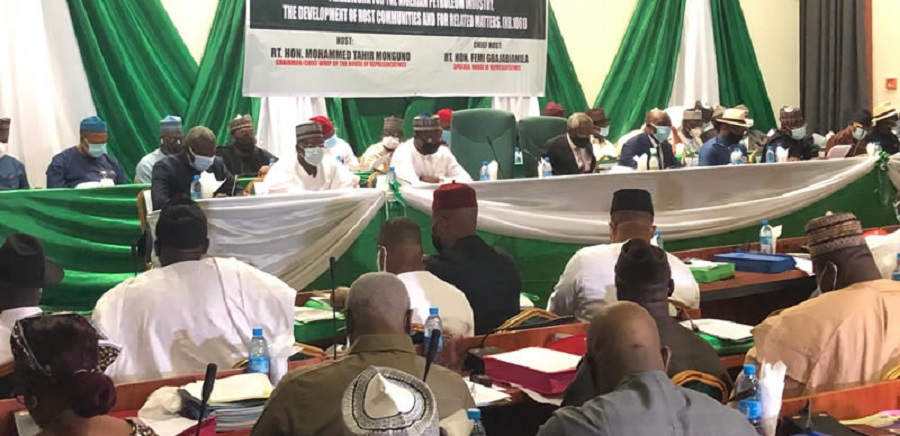A house divided is bad enough, misplaced priorities make it even worse.

It has been nearly two weeks since host community representatives from the Niger Delta engaged in a
fistfight at the floor of the Petroleum Industry Bill (PIB) public hearing. While some have speculated as to what led to the incident, others have merely watched on, familiar with the typical drama that has accompanied the ageing PIB.The fracas resulted after the Chairman of the Adhoc Committee on the PIB, Hon Mohammed Moguno had requested for a single representative for the host communities. This did not go down well with the parties, each a representative in his own right. Also, there was the key issue of the 2.5% annual contribution of operators to the petroleum host community trust fund as provided under Section 240 (2) of the PIB.
The contention was that this should be up to 10% and should be in form of equity in the oil companies, as the 2.5% proposed was too meagre for the debilitating effect of oil and gas projects, as well as the thankless job of keeping oil and gas installations safe from tampering.
It is ufortunate that even the ostensible representatives of the host communities were unable to come to a consensus even amongst themselves, particularly about issues of leadership and representation. About 24 hours shy of the occurrence of this fracas, somewhere in the Netherlands, the Hague Court of Appeals ruled that Shell is liable for damage caused by leaks in the Oruma in Bayelsa, Goi in Rivers and Ikot Ada Udo in Akwa Ibom and ordered Shell to pay compensation to the farmers who were the plaintiffs.
Here, another tranche of compensation payment was soon to be made to the host communities, notably, only about 5 years after the Bodo $83.4 million payment, which some indigenes complained was not properly distributed to the benefit of everyone. Yet, the representatives of the community- or at least those who had postured themselves as such- were back home dividing the house.
A question worth asking might be why the clamour by the host community representatives was not for the Environmental Remediation Fund in Section 103 of the PIB to have a specific percentage (or a base percentage and a formula determined by size of operator’s operations) as opposed to the vague language used in its determination, particularly in the light of the stalled and unfinished clean-up of Ogoni.
The clamour may also have been better directed towards the amendment of Section 233 of the PIB from an almost speculative formula to a specific percentage for the payment required to be made to the decommissioning and abandonment fund, seeing as poor decommissioning and abandonment has continued to be a thorn in the Nigerian oil and gas industry.
The host communities seem not to be as concerned about these broader issues as they are about who plays Lion King and how big their share of the oil companies’ cakes can get. A house divided is bad enough, misplaced priorities make it even worse.
Years of contributions similar to the one the host community representatives demanded at the public hearing have gotten the Niger Delta nowhere. From OMPADEC to the NDDC, these institutions have continued to be corruption blocs with an institutional garb, designed to funnel development funds through backchannels for personal enrichment and at the expense of the average Niger Delta indigene, thus further increasing the risk of security threats in the area.
READ: FG assures oil companies of lower taxes in new PIB
Even in cases where compensation has been paid to the communities, typically through their representatives, the average indigene has failed to reap the full benefits of such compensation, while feeling the blunt end of the pollution. It appears there is more than meets the eye to being a representative or spokesperson.
While dividing their house for the world to see, the fistfighters failed to question why NDDC contributions or payments (by whatever name they go) were still a part of the PIB after the NDDC has left a 20-year trail of uncompleted projects, unaccounted monies and general ineptitude.
Why any payments should be made to an institution that has failed to live up to its mandate should be of concern to anyone who has the interest of the Niger Delta people at heart. Perhaps these are just enough reasons to question the ambition of “representation”, and decide whether the Niger Delta house is united enough to see the real issues through and not remain a stumbling block for the PIB.
In instances like this, the oil players and government interests too do not hold back in infiltrating such a divided camp, forming interest groups and incentivising them. It then becomes inevitable that each piper plays the tune of the payer. Whether the actual host community dwellers have their interests served in all of these talks remains to be seen.




No comments :
Post a Comment